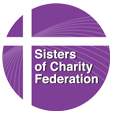No continent or country is free of some form of forced labor. Elimination of forced labor is a challenge to governments around the world. Labor traffickers use force, fraud and coercion to lure vulnerable people with promises of high-paying jobs to work against their will. Extreme poverty, lack of employment, violence conflicts/war and natural disasters are making millions of people vulnerable.
Forced labor is another form of modern day slavery. Women, men and children trapped in forced labor are denied their human rights and deprived of their freedom – they live and work in the shadows, in inhuman conditions. Forced labor generates $150 billion illegal profits in the private economy every year; $99 billion comes from commercial sexual exploitation, including domestic work, agriculture and other economic activities.
According to the International Labor Organizations’ Forced Labor Convention of 1930, forced labor is – “all work or service which is exacted from any person under the threat of a penalty and for which the person has not offered himself or herself voluntarily.” Use of violence, intimidation, manipulation of debt, retention of identity papers, threats of denunciation to immigration authorities, etc. are the common practices employed to keep people enslaved. In addition to being a serious violation of fundamental human rights and labor rights, forced labor is a criminal offence.
The ILO says “20.9 million people around the world are subject to it [forced labor]. Ninety percent (18.7 million) are exploited in the private economy, by individuals and enterprises and the remaining 2.2 million are in state-imposed forms of forced labor.” Of the 18.7 million, 22 percent – 4.5 million – are victims of forced sexual exploitation and 14.2 million (68 percent) of forced labor exploitation. The Walk Free Foundation names Mauritania, Uzbekistan, Haiti, Qatar and India as the centers of modern day slavery.
What role can we play to end forced labor?
Forced labor is a social sin/crime and we all have contributed directly or indirectly to sustain this criminal exploitation. Pause to check from where our everyday use items come from – clothes, electronics and grocery; who produces them and under what conditions; are they paid a fair living wage? Do they employ slave/child labor? What steps can we take to change our consumer behavior to reduce the demand for forced labor?
-Start a Fair Trade campaign in your congregation, school, university, town. Learn more at http://fairtradecampaigns.org/
-Take the Slavery Footprint survey to learn how many exploited people work for you and raise your voice to ethically sourced products. Visit http://www.slaveryfootprint.org/
-Learn more about labor trafficking and download labor trafficking focused episodes of the Ending Human Trafficking Locally and Globally podcast
-Write letters to elected leaders
Resource Videos
Watch: https://vimeo.com/196331789
Watch: https://vimeo.com/196328502
Watch: https://youtu.be/YCId7lh3Sjk
Written by Sister Teresa Kotturan, NGO representative for the Sisters of Charity Federation at the United Nations
